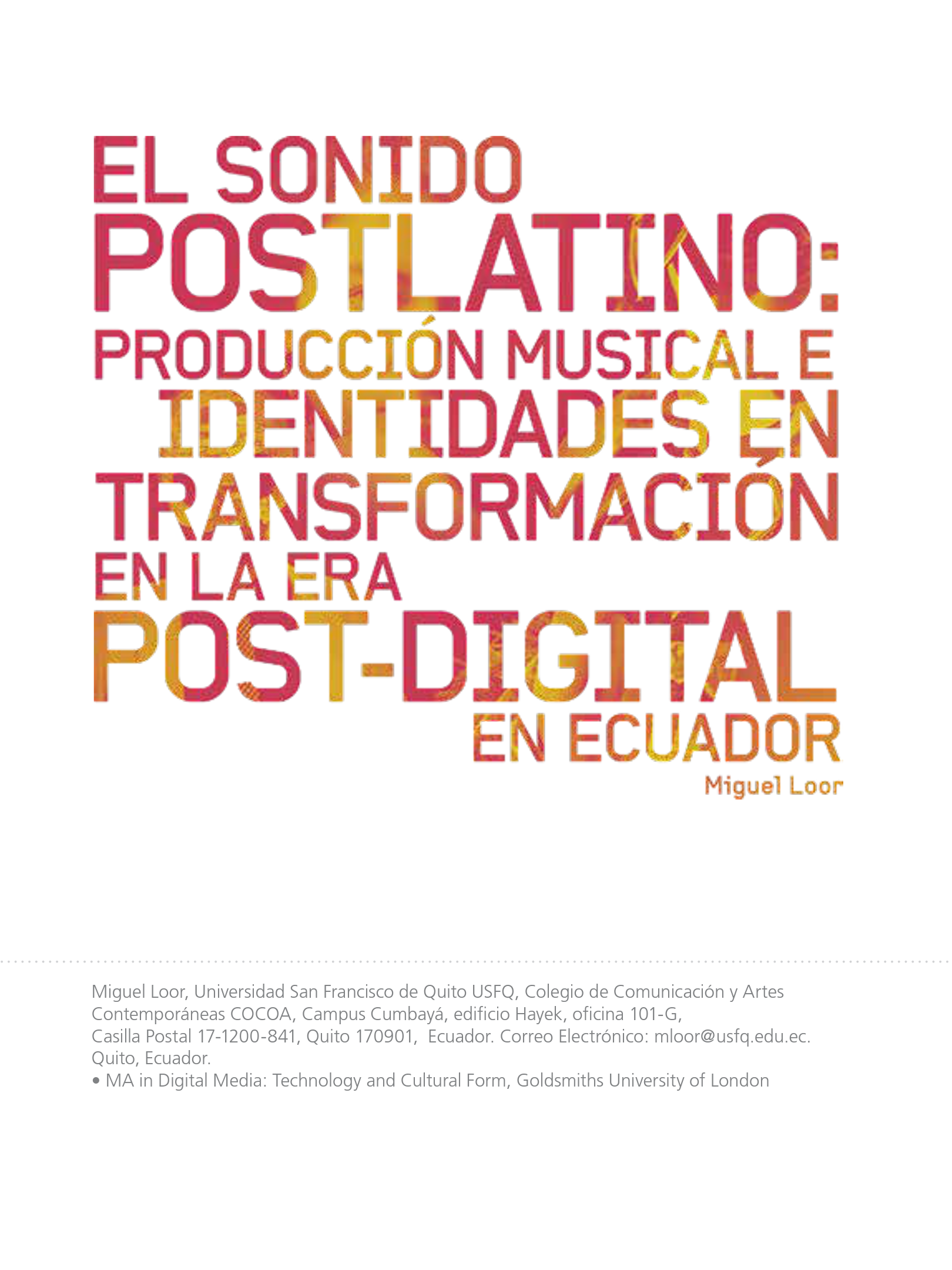Post-Latin Sound: Musical Production and Identities in Transformation in the Post-digital era in Ecuador

Published 2018-12-21
Keywords
- post-digital music,
- music,
- identity,
- podcasting,
- postlatin
How to Cite
Copyright (c) 2018 Miguel Loor

This work is licensed under a Creative Commons Attribution-NonCommercial 4.0 International License.
Abstract
In the last five years, local musicians and producers have turned their gaze towards Ecuadorian and regional traditional sounds. This article explores the cultural tensions of contemporary music production in this country, and the post-digital aesthetics. At the same time, it discusses the dialogue in music production between the traditional and contemporary sounds, the global and local flows, and the analogue and digital technologies. In addition, this study aims to deconstruct production and composition processes of various songs, as well as the discursive construction of this music. In this context, the podcast "Postlatino" becomes an important element in the research process.
Downloads
References
- Baker, G. (2015). "˜Digital indigestion"™: Cumbia, class and a post-digital ethos in Buenos Aires. Popular Music 34 (02), 175-96. doi:10.1017/ s026114301500001x
- Berry, R. (2015). A Golden Age of Podcasting? Evaluating Serial in the Context of Podcast Histories. Journal of Radio & Audio Media 22 (2), 170-8. doi: 10.1080 /19376529.2015.1083363
- Cascone, K. (2000). The Aesthetics of Failure: "Post-Digital" Tendencies in Contemporary Computer Music. Computer Music Journal 24 (4), 12-8. doi:10.1162/014892600559489
- Cramer, F. (2015). What Is "˜Post-digital"™? En Berry, D. y Dieter, M. Postdigital Aesthetics, 12-26. Londres: Palgrave McMillan.
- Entrevista personal Mariela Condo, 3 de febrero de 2017
- Entrevista personal Mateo Kingman, 3 de febrero de 2017
- Entrevista personal Alex Alvear, 11 de enero de 2018
- Entrevista personal Juan Rosales, 1 de junio de 2018
- Entrevista personal Alex Illingworth, 18 de julio de 2018
- Frith, S. (1996). Música e identidad. En Hall y Du Gay (comps.) Cuestiones de identidad cultural (p.13-39) Buenos Aires-Madrid: Amorrortu editores.
- Hall, S. (1996). Introducción: ¿quién necesita "˜identidad"™?. En Hall y Du Gay (comps.) Cuestiones de identidad cultural (p.13-39) Buenos Aires- Madrid: Amorrortu editores
- Hesmondhalgh, D., y Bixio, A. (2015). Por qué es importante la música. Buenos Aires: Paidós.
- Márquez, I. (2016). Cumbia digital: Tradición y postmodernidad. Revista Musical Chilena 70 (226), 53-67. doi:10.4067/s0716-27902016000200003
- Mullo, J.(2009). Música patrimonial del Ecuador. Quito: Cartografía de la Memoria.
- Wong, K. (2013). La música nacional: Identidad, mestizaje y migración en el Ecuador. Quito: Casa de la Cultura Ecuatoriana Benjamín Carrión.
